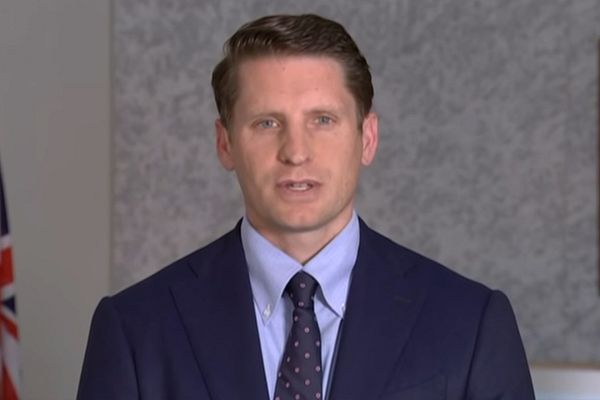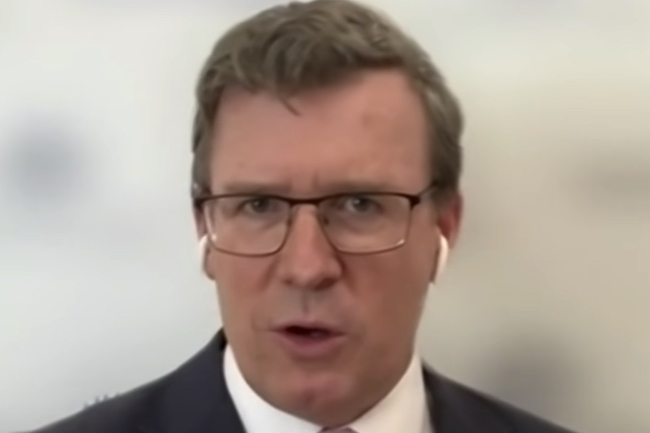The Prime Minister and Liberal MP Andrew Hastie have perpetuated tension between the Government and ADF during the Brereton investigation, writes Dr Dean Aszkielowicz, Paul Taucher and Dr Robert Payne.
IN A SPEECH to Parliament on 3 December 2020, Liberal MP and former SAS officer Andrew Hastie suggested the Australian Defence Force (ADF) was wrong to release the unredacted Dr Samantha Crompvoets report alongside the more comprehensive four-year report completed by Major General Paul Brereton.
While acknowledging that Dr Crompvoets’ 2016 report laid the groundwork for the Brereton investigation, Mr Hastie argued that its “unproven rumours of Australian soldiers murdering Afghan children... allowed the People's Republic of China to malign our troops”.
While Hastie is clearly justified in objecting to the indefensible and antagonistic tweet put out by a Chinese government official, his focus on China’s messaging threatens to undermine Brereton’s findings and the necessary process of establishing accountability. The comments also shift the Australian public’s focus from what occurred and why, reframing criticism within the ongoing “us versus them” battle between Australian and Chinese values and interests.
Hastie’s speech followed comments last week from the Prime Minister that pressured General Angus Campbell to reverse course on his decision to strip meritorious service awards from Afghan campaign veterans — a Brereton recommendation. The actions by both Mr Morrison and Mr Hastie continue a trend of recent tension between the Government and the ADF. In March, Campbell indicated his discomfort with images of military personnel being used in a government bushfire video. In 2016, Hastie’s service in the standby Army Reserve was terminated after he used images of himself in uniform in campaign material.
There will be consequences if the tensions between the Government and the ADF continue to spill over to politicising the Brereton report. The political commentary will weigh down any further efforts from the ADF to deal with the Afghan inquiry, potentially shaking any faith the Australian people and international onlookers have in the process. In fact, we are already beginning to see how the political interventions have muddied the waters: on Sunday, a military parade had to be postponed, amid calls for the Prime Minister to intervene in the decision to disband the SAS 2nd Squadron.
The ADF seems to be trying to do the right thing
The only way to repair the severely damaged reputation of Australia’s military is with a transparent and comprehensive legal process, that is free of political influence as much as possible. Not only does justice need to be carried out, but it needs to be seen to be carried out.
The ADF has responded to the Brereton Report with an administrative process and by referring its findings to the Federal Police. There are still key questions over the culpability of Australian commanders for these alleged crimes and it remains to be seen how the ADF handles this. Nevertheless, the early moves do constitute a step towards dealing with the alleged crimes in a transparent and impartial way.
The task for the ADF is not straightforward. War crimes prosecutions punish individual perpetrators, but there is an acknowledgement that the crimes took place within a chain of command and an organisational culture. The problem of determining individual and collective responsibility has plagued all war crimes trials, including the prosecutions of Japanese war criminals conducted by Australia after the Second World War. We need to give the ADF time to work this issue through.
War crimes proceedings are sensitive to political influence
War crimes prosecutions are unlike most other criminal legal proceedings. They are tangled with questions over the conflict in which they were allegedly committed. We have seen this already in the Afghan episode. Commentators and the public almost immediately questioned the nature of the Australian deployment. Should we have been in Afghanistan in the first place? Were our soldiers pushed too far? Is this the fault of a few perpetrators, or a much wider problem? How far up the military chain of command does the blame go? Any legal process that follows from here will be carried out with these questions weighing heavily upon it.
The history of war crimes trials offers an important perspective on what is at stake if the judicial process falls short of expectations, for what are deemed to be political reasons.
Australia’s prosecution of Japanese war criminals concluded almost 70 years ago and yet discussion of the trials – in scholarly circles and beyond – cannot escape the question of whether they were fair or not. Many of the questions of fairness centre on the role politics played in the design and direction of the trials. Were ordinary Japanese soldiers made to pay for the crimes of Japan’s senior military and political leaders? Did some escape trial for political reasons? Did the Allies do things during the war that we ought to consider to be crimes? These questions and many others emerged immediately after the trials and persist to this day.
How independent any legal proceedings are will determine how they are viewed by Australians, by our international partners, by the Afghan people and by future generations. A transparent, timely and comprehensive investigation, followed by legal proceedings if appropriate, will help Australia to restore its reputation.
On the other hand, a process that features persistent commentary, critique and possibly even interventions from politicians would offer little hope that this can be achieved. If that is the case, then questions over the legitimacy of Australia’s justice for alleged war crimes could still be being debated decades from now.
Paul Taucher is a PhD candidate and casual tutor at Murdoch University with undergraduate degrees in Law and History.
Related Articles
- What the Afghanistan report means for the commanders
- War crimes report: Changing the culture and facing the true cost of war
 This work is licensed under a Creative Commons Attribution-NonCommercial-NoDerivs 3.0 Australia License
This work is licensed under a Creative Commons Attribution-NonCommercial-NoDerivs 3.0 Australia License
Support independent journalism Subscribe to IA.














